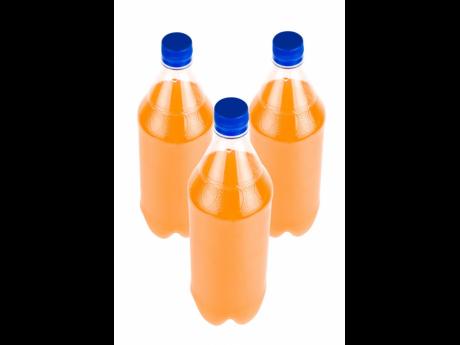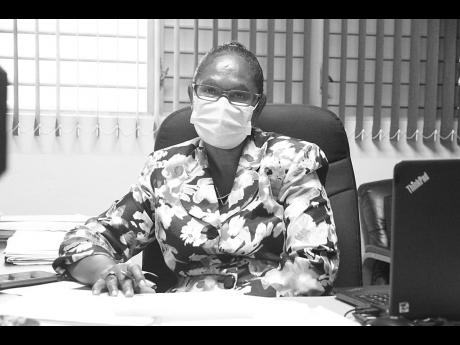Policy not clear
Schools want Government to give more precise guidelines on sugary drinks ban
A Sunday Gleaner undercover investigation carried out at a public health facility and four schools across Clarendon revealed that they were in breach of the Government-imposed ban on sugary drinks.
In 2018, Health Minister Dr Christopher Tufton announced a ban on sugary drinks at schools and public health facilities, which took effect in January 2019.
“Effective January 2019, the Government will implement a policy to restrict certain types of sugary drinks in schools. By sugary drinks, we mean beverages that contain sugar or syrup that is added by the manufacturer,” Tufton said during his contribution to the 2018-2019 Sectoral Debate in the House of Representatives on June 5.
He added, “If we are going to impose it in schools, I believe in public health we must also lead by example, and so the same policy will become effective. Except for where there are prescribed dietary guidelines for patients, the same policy will be introduced in our public health infrastructure across the length and breadth of this country.”
The Interim Guidelines for Beverages in School – a collaboration between the ministries of health and education, youth and information – cites that beverages exceeding five grams per 100 millilitres (up to 2020) are prohibited.
At the hospital, as well as the infant, primary and preparatory schools visited by The Sunday Gleaner team, clear breaches were observed.
At the May Pen Hospital, external parties were on the compound selling beverages with high sugar content.
The hospital’s acting chief executive officer, Eugena Clarke-James, told The Sunday Gleaner that the practice was not supported or condoned by the facility.
“Vending on the premises is [also] restricted, with signs indicating ‘no vending’. It’s a breach in the standing order governing security. Intelligence, however, revealed that persons disguise themselves as clients to gain access on the premises to get their product sold,” she said, adding that the facility has since ramped up security to deter the practice.
At the schools, several administrators, concessionaires and vendors appeared oblivious to the rule, as many of the beverages on sale exceeded the recommended level of sugar content. Some said they were not cognisant of what the prohibited items were or what amount of sugar was “acceptable”.
‘THEY NEED ENERGY’
At the preparatory school in the central parish that the team visited last Thursday, the tuck shop operator said that she was not aware of the rules governing the ban on sugary drinks. She contended that the Government had not been “clear enough” on what should be sold to children.
“The Government can be more specific about what we should sell. All schools should get a list,” she said.
According to her, sodas are a necessary commodity for students.
“I think it’s okay, because it gives them little energy. No soda? But they need little energy,” she said.
Children’s total energy intake should be met by consuming 55 to 75 per cent calories from carbohydrates; less than 10 per cent of which should be from added sugar, as mandated by the Government.
When The Sunday Gleaner contacted the vice-president, she said the school tries to “stay on the safe side” and that they had removed sodas from the tuck shop, but had reintroduced them in January. She did not disclose the reason for this.
“I’m aware of an adjustment, but I’m not aware of a total ban. I’m not sure if I’ve ever seen anything that says they’re not to be sold at all. I know some of the juices have reduced sugar,” she said.
Among the learning institutions visited on Thursday, the May Pen Primary School had the least amount of sugary drinks being sold, with far more water than juice in stock.
A staff member told The Sunday Gleaner that the school had discontinued the sale of sodas years ago as a means of promoting a healthier lifestyle, a decision that reflected the message at the tuck shop’s entrance: “Get your healthy snacks here”.
Though small in quantity, The Sunday Gleaner team asked the school’s principal, Paul Scott, why some products that exceeded the stipulated amount of sugar were still being sold.
“The challenge that most schools have is that the suppliers are not supplying the sugar content level that is required. And the second thing in the public schools is the parents’ lack of ability to get the exclusive items,” he responded, alluding to the notion that healthier items are sometimes more expensive.
“We used to buy fruit juices and so on and the students didn’t buy them. Maybe the economic situation of the parents cause them to not be able to have the funds to buy the drinks that are [permitted], so we try to give them a small mix,” the principal explained.
He disclosed that a particular drink that was removed from the offering was reintroduced after the sugar content was reduced.
‘SELL WHAT THE SUPPLIERS SUPPLY’
A tuck shop worker at the May Pen High and Preparatory School said only alcohol and caffeine-based products were excluded from the list of items sold at the institution, citing religious reasons.
“The school is an Adventist school,” he explained.
He said that he did not see a problem with the students consuming sodas, and that it was the beverage of choice for many students.
The Sunday Gleaner contacted the institution’s principal, Winston Preddie, who said what the school sells is simply what it gets from suppliers.
“We sell what the suppliers supply. The ministry gave some instructions as to what’s to be done, and the suppliers who supply the stuff we get here say they have reduced the sugar,” said the principal.
He added, however, that recent surveys show that his students are purchasing more water.
A bottle of soda was purchased at the infant school visited. When quizzed on why the particular item was being sold there, one worker claimed that the carbonated drinks were not for students, but for staff.
She added: “We have small box drinks for the students.”
Research shows that child obesity is linked to the high consumption of sugary beverages, and can lead to type 2 diabetes.


